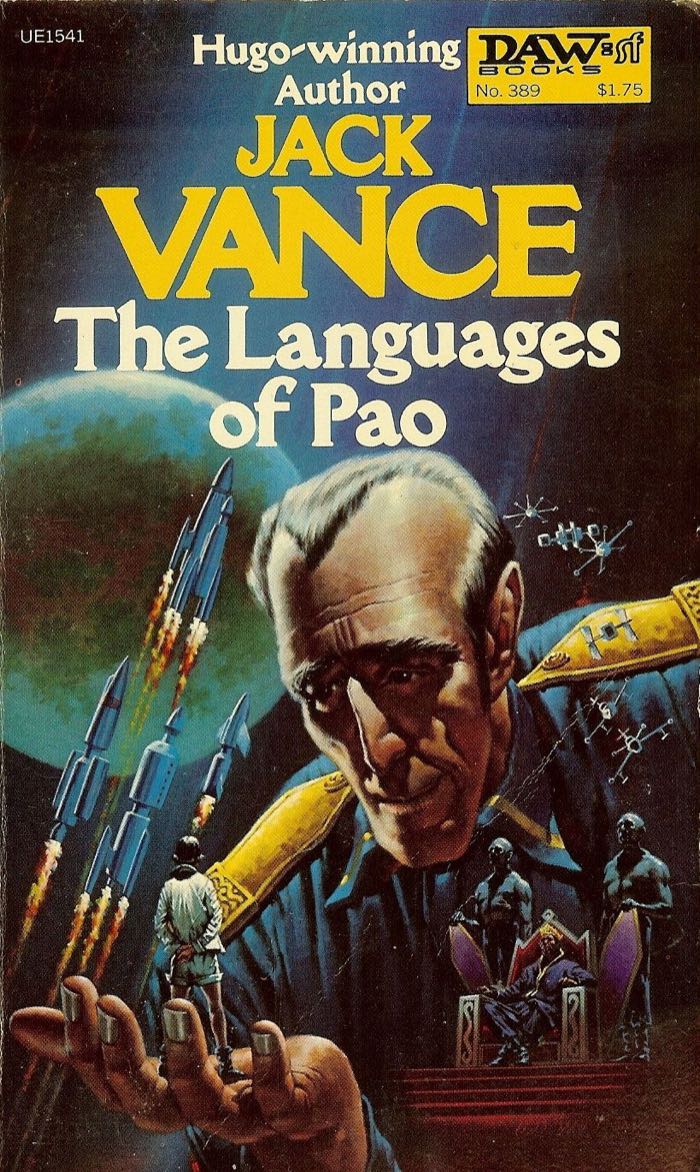The Languages of Pao
Reviewed date: 2004 Dec 23
Rating: 4
159 pages
Few science fiction stories have linguistic hypotheses as their principle assumption. The Languages of Pao is based on the Sapir-Whorf Hypothesis, which states:
Human beings do not live in the objective world alone, ... but are very much at the mercy of the particular language which has become the medium of expression for their society. ... [The] "real world" is to a large extent unconsciously built up on the language habits of the group.
Edward Sapir, 'The Status Of Linguistics As A Science', 1929
In The Languages of Pao Jack Vance assumes the Sapir-Whorf Hypothesis is true; he assumes that the language spoken by a people determines how they think and act. A people's culture is a product of their language. A corollary to the Sapir-Whorf Hypothesis, then, is that by changing the language of a people one can change their culture. That is the central element of Jack Vance's 1958 novel.
Beran Panasper, heir to the throne of the planet Pao, flees Pao when his father is murdered by Beran's uncle Bustamonte. Beran lives in exile on the planet Breakness while Bustamonte rules over Pao. On Breakness Beran plots revenge against his uncle, while on Pao, the usurping Bustamonte rules with an iron fist. Bustamonte introduces sweeping changes designed to reshape the Paonese culture from one of docility to one of strength and violence. Pao has long suffered as a vassal of foreign powers, and Bustamonte fears that if he cannot turn the Paonese into a fighting force that Pao must forever pay tribute to distant emperors.
To reshape Paonese culture Bustamonte forces the people to learn and speak new languages. As the people learn new languages their thought patterns must shift appropriately. If the language is designed correctly, the Paonese culture of docility will be eradicated.
As Beran sees the cruelty with which Bustamonte forcibly reshapes Paonese culture, he knows he must depose Bustamonte and retake the throne. Not merely for the sake of his own personal revenge, but also for the millions of Paonese who have been displaced or killed by Bustamonte's forced reshaping programs. It is a race against time: Bustamonte's programs move with increasing rapidity, and Beran's allies are few.
While few modern linguists accept the Sapir-Whorf Hypothesis as true in a strong literal sense, it is logical to believe that one's language does influence--to some degree--how one thinks. It is unlikely that an entire culture could be reshaped merely by introducing a new language, but the concept is intriguing enough to make The Languages of Pao a good story.
The Languages of Pao rates a four out of five.
